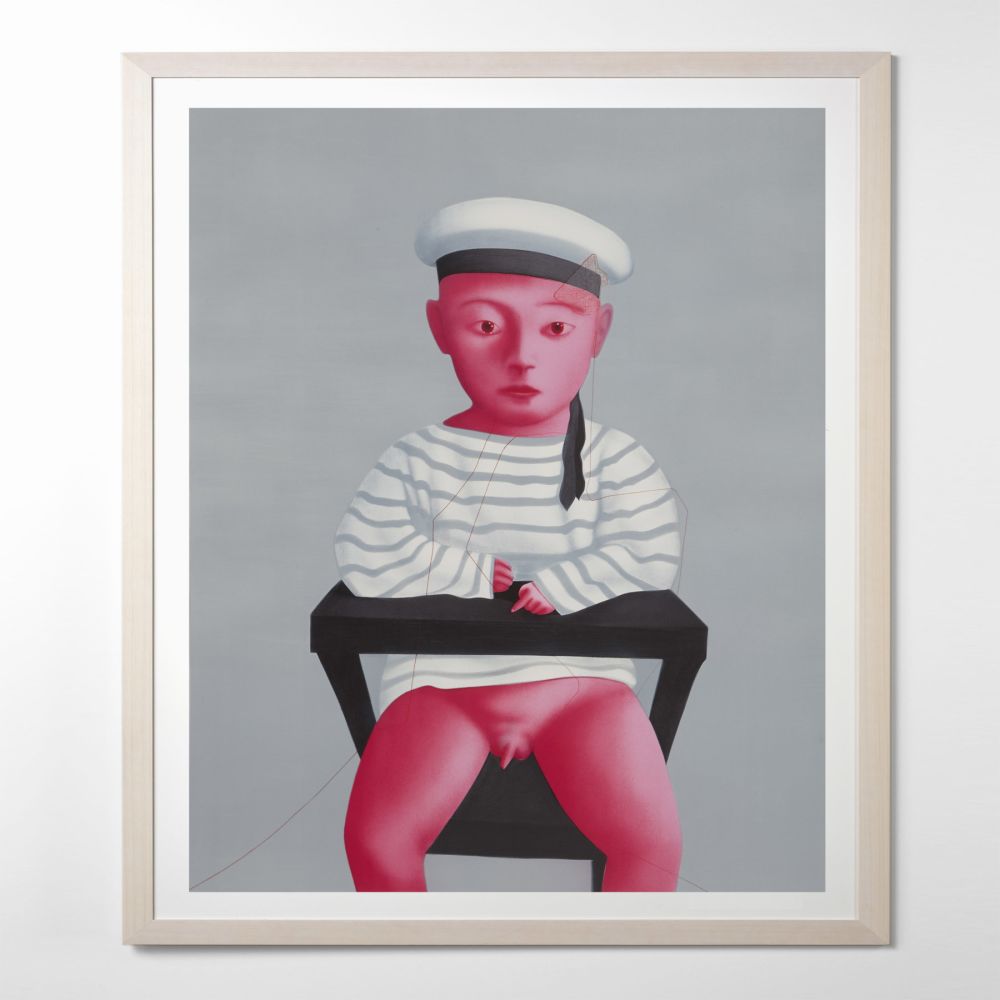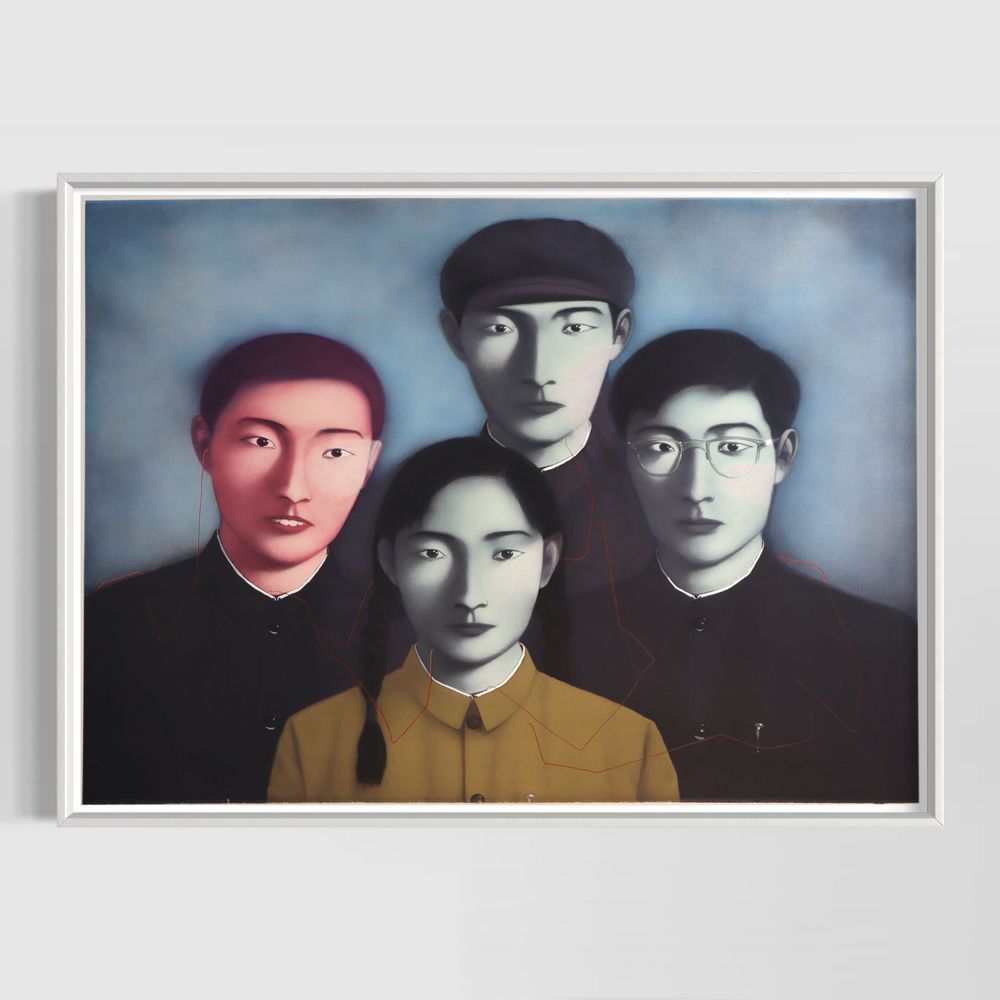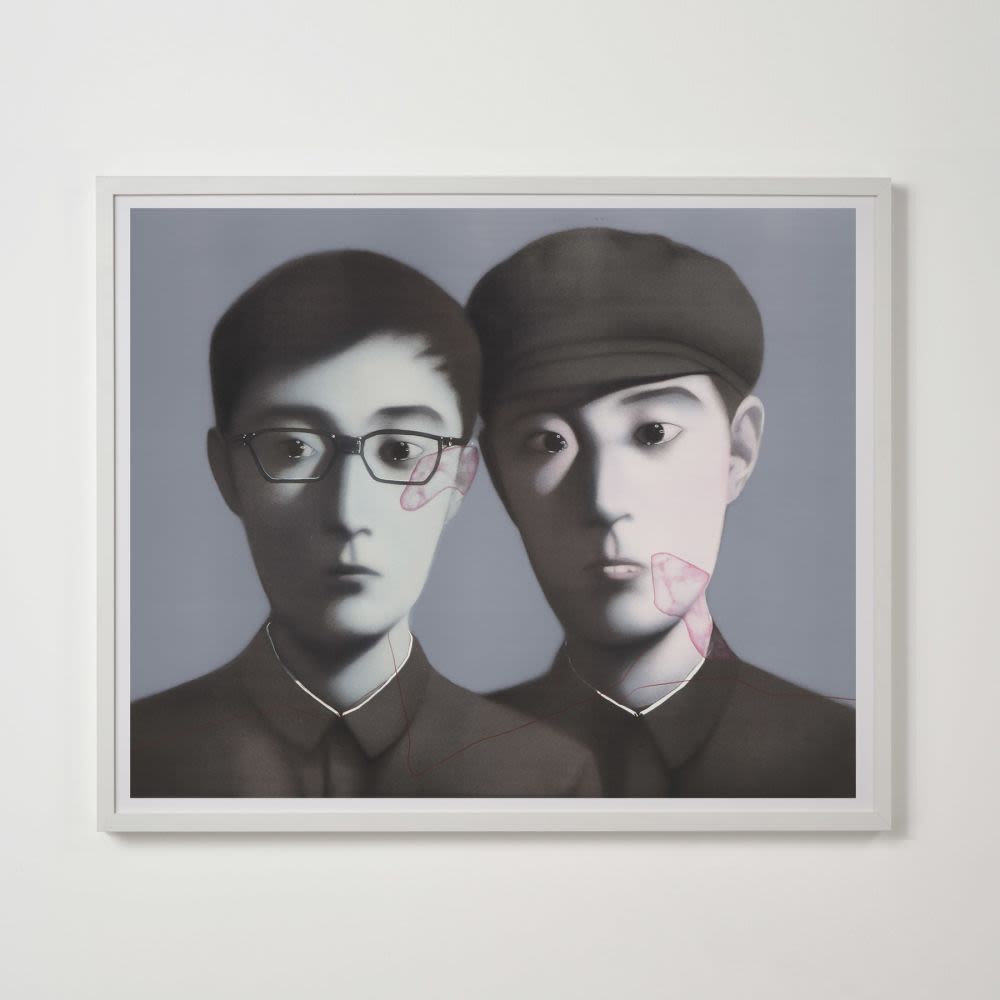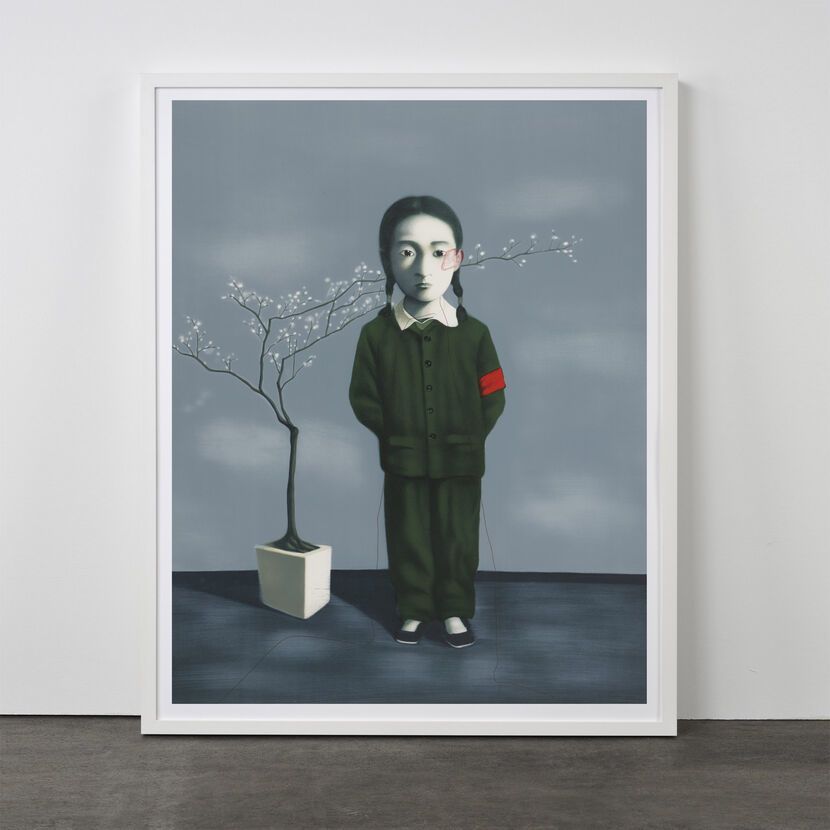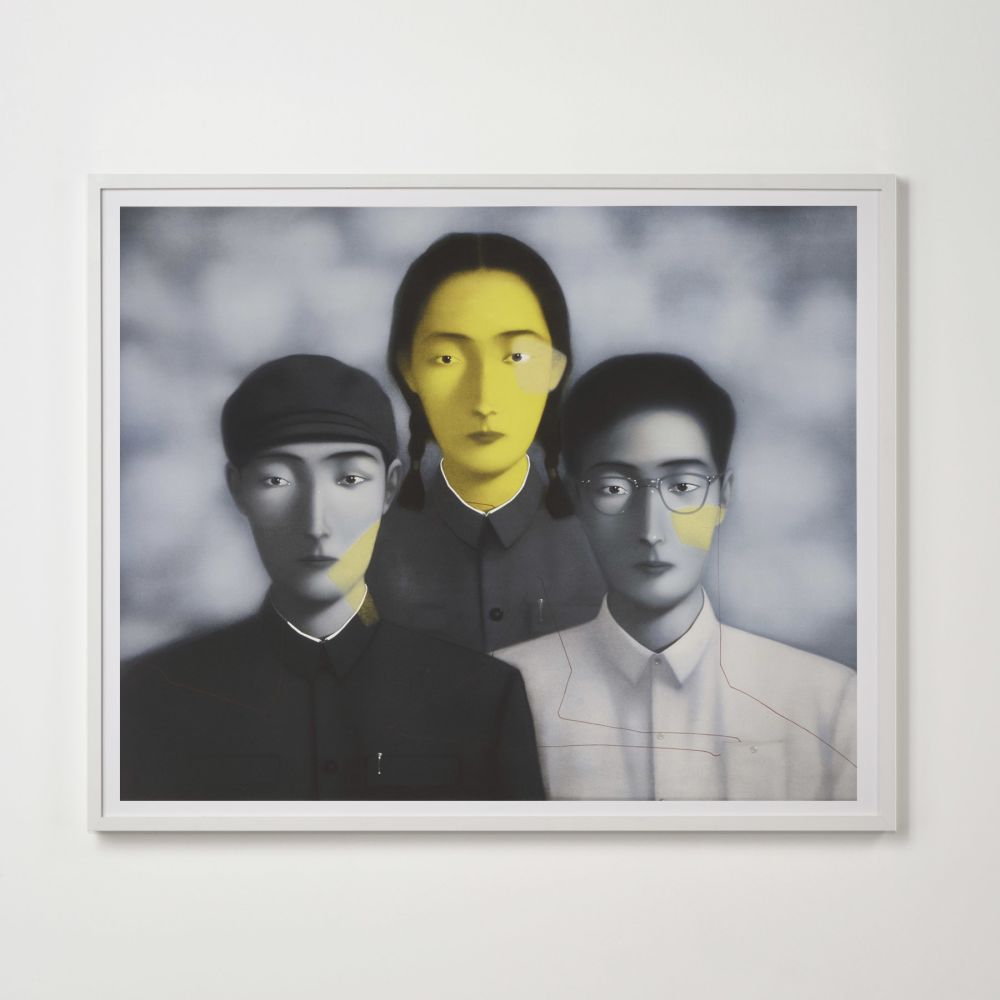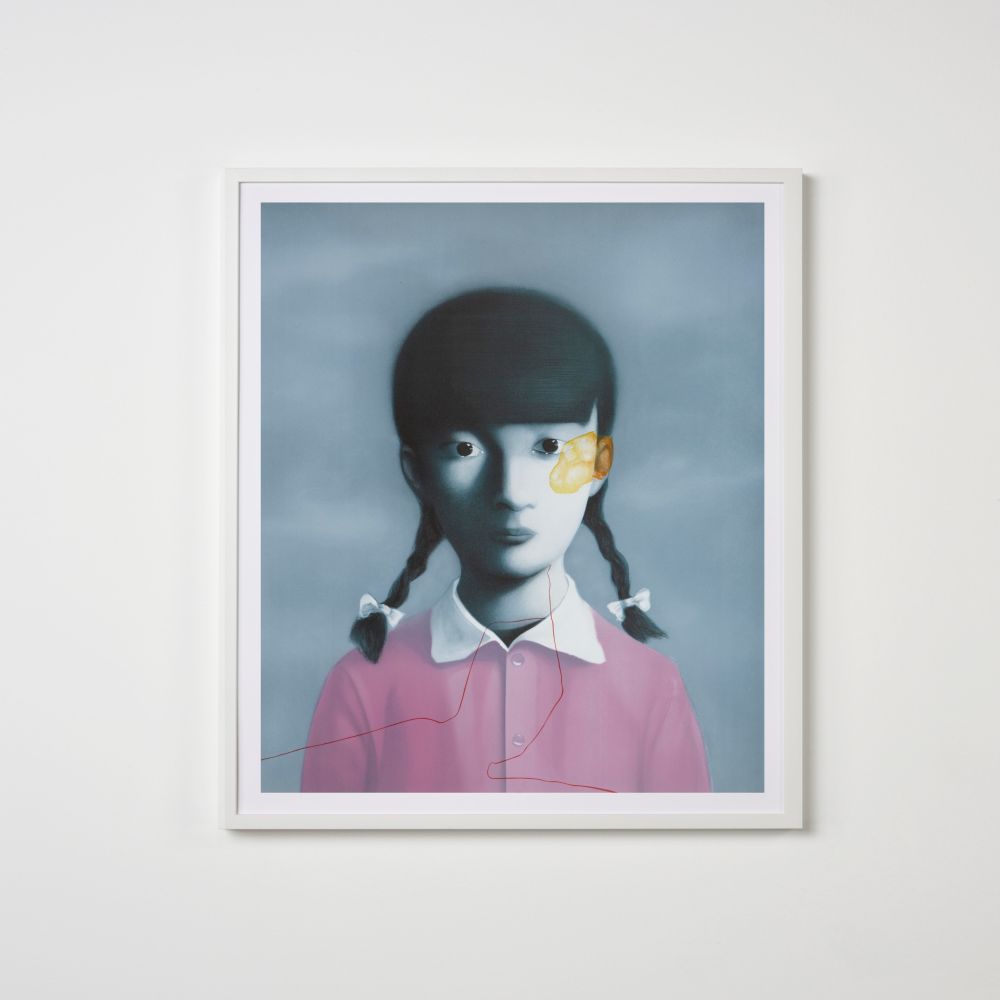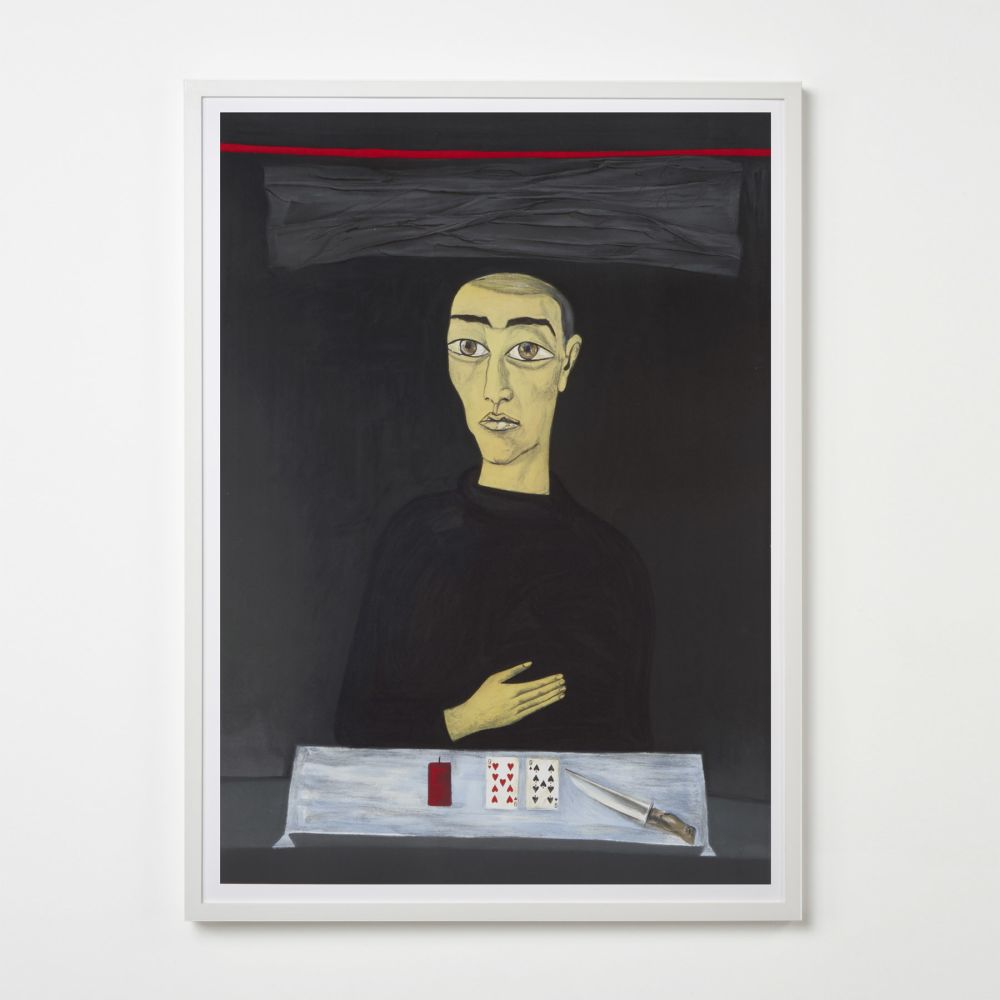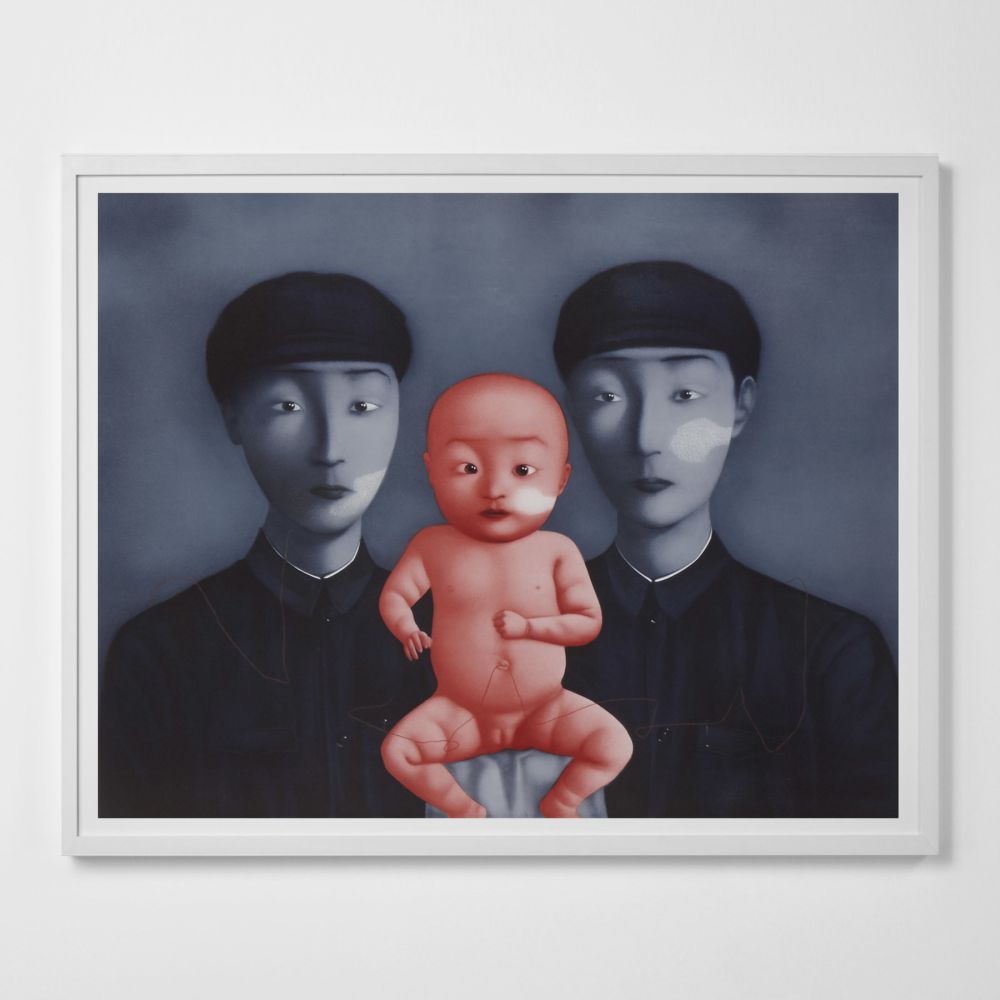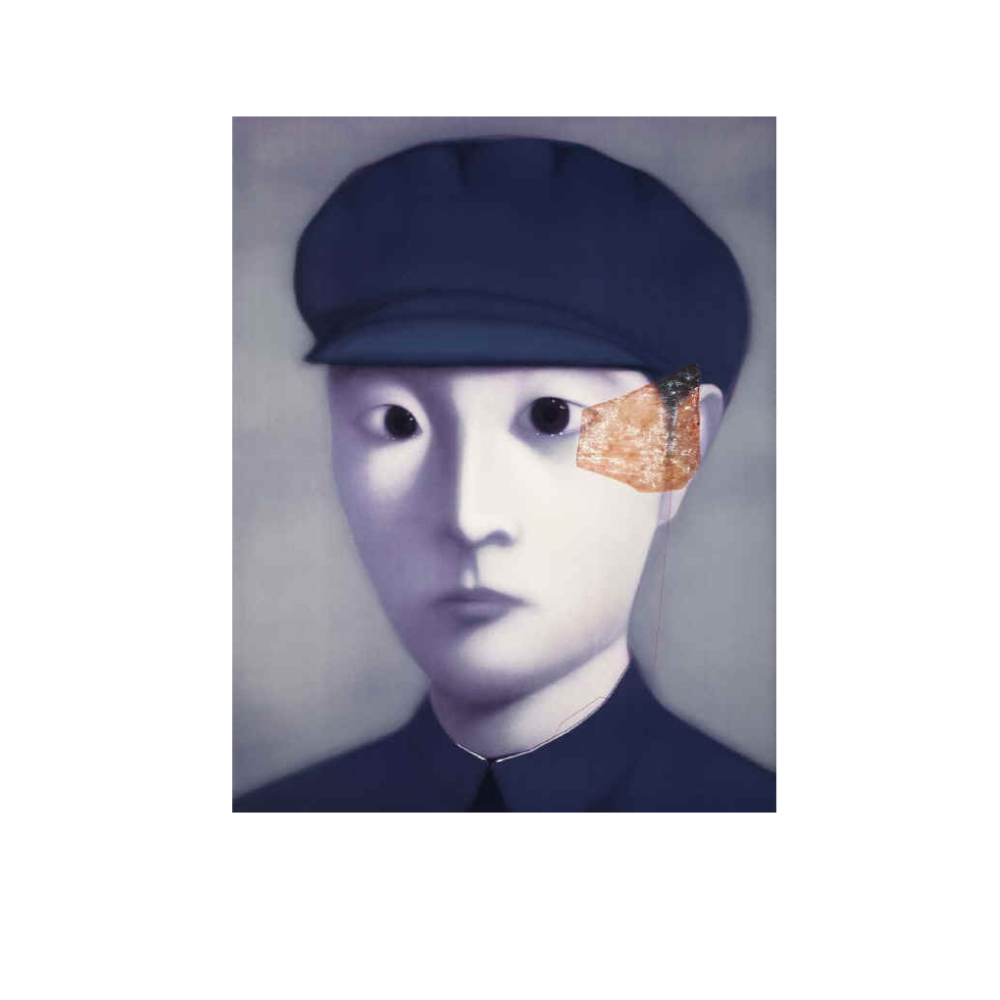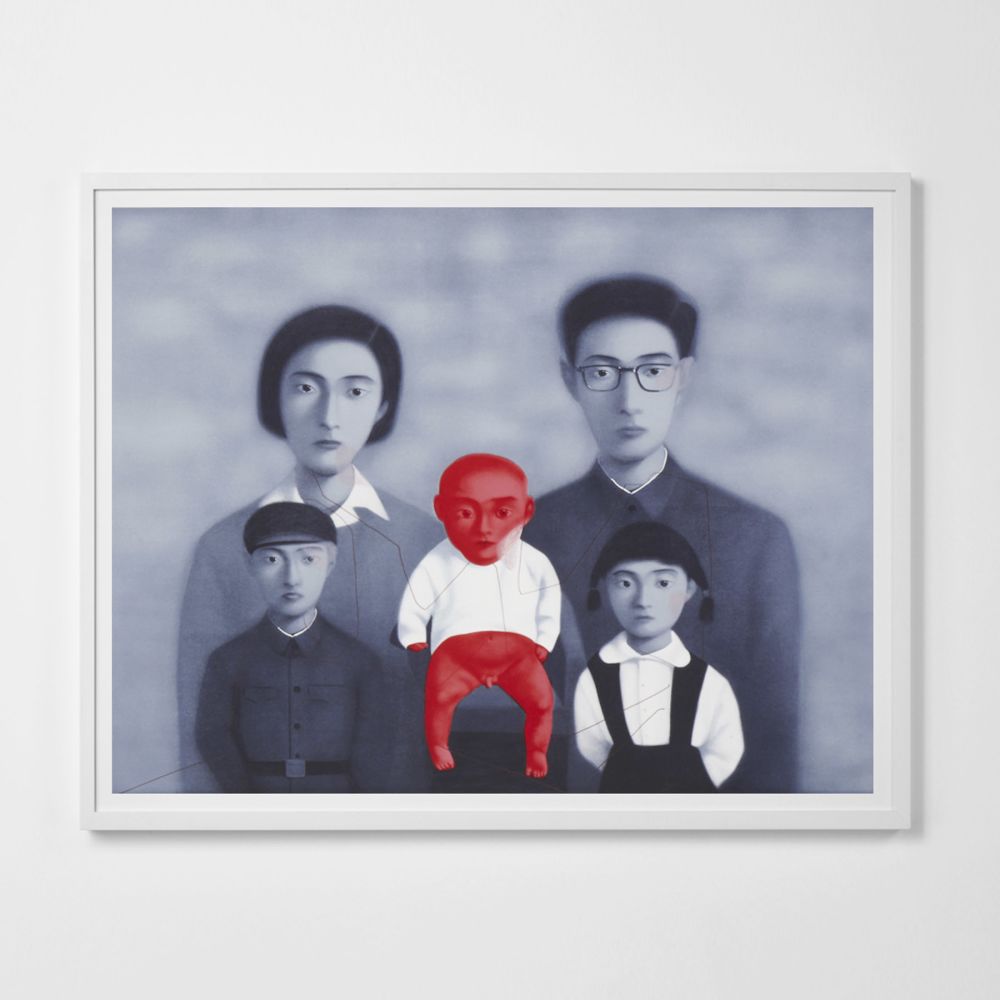Zhang Xiaogang
Zhang Xiaogang (b. 1958, Kunming, China) is one of the most prominent contemporary Chinese artists, widely recognised for his hauntingly symbolic and surrealist portraits. Best known for his Bloodline (1993-2005) series, Zhang developed a unique visual language inspired by family photographs from the Cultural Revolution (1966-1976) period, blending the aesthetics of black-and-white photography with painterly techniques that evoke nostalgia, memory, and collective identity. His restrained palette of greys and muted tones is often punctuated by subtle washes of colour or thin red lines, symbolic of personal and generational ties.
Over a career spanning more than four decades, Zhang has explored themes of family, identity, and the tension between individuality and collectivism, creating an expansive body of work that resonates with both Chinese cultural history and global narratives of memory and belonging. While his portraits often appear uniform or anonymous, they carry psychological weight, reflecting the interplay of personal histories and broader socio-political realities.
Zhang’s work has been exhibited in multiple institutions such as the Long Museum West Bund in Shanghai (2023) and the Song Art Museum in Beijing (2025). His paintings are housed in major international collections, including the Guggenheim Museum, MoMA, and the Centre Pompidou, cementing his reputation as one of the leading figures of Chinese contemporary art.
“ I take away most of the colour in my paintings because I want my paintings to be a memory of a person or of a scene, and not what we see with the naked eye with all this colour. [...] I add the patch of colour to make the painting look more like a dream. „

